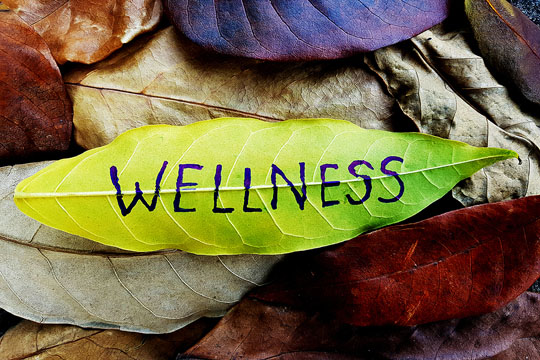All-round advice on supporting yourself through the perimenopause and menopause inside and outside of work
Well-being is the state of being comfortable, healthy, or happy. The agreed definition of well-being from a study in 2023 also explained that “Well-being can be understood as how people feel and how they function both on a personal and social level, and how they evaluate their lives as a whole”. This can also include well-being at work.
As with all things regarding health, one size does not fit all, and so what helps one person’s state of well-being can be completely different for the next person. It is the same for hormone health; one person’s perimenopause and menopause journey can be totally different to those around them in the same life stage.
The tools you use to support your well-being at home and at work will be personal to you and what fits in best with your lifestyle. There are different aspects of well-being to consider, especially when managing perimenopause and menopause symptoms:
Physical well-being
This includes:
Being active: Physical activity can make a huge difference to our mood, and help us relax if we are feeling tense. For some people, particularly those with long-term health conditions, being physically active can be a huge challenge. It can help with starting small, pacing and focusing on adapting activities to build achievable goals. Take a look at the article in this series on exercise to get some ideas of what kind of activities can help with perimenopause and menopause symptoms.
Nutrition: Eating a healthy balanced diet fuels your body with the nutrients it needs to process hormones and give you energy.
Hydrate: The overlooked nutrient. When hydrated, we can have less brain fog, better digestion leading to better nutrient absorption, more energy and the ability to deal with stressful situations.
Emotional well-being
Emotions are often symptoms referred to with reference to perimenopause and menopause. Some emotions felt are anxiety, depression, anger, frustration, sadness and overwhelm. Menopause can be an emotional rollercoaster for some people.
NHS research suggests that focusing on being in the present moment can help ground us when emotions are becoming overwhelming. Taking deep breaths can help us to feel grounded, or taking a moment to go outside and take your shoes off (if possible and weather permitting) and feel the earth underneath your feet.
Reaching emotional well-being can be a journey for some people. If you find that certain emotions frequently come up for you and you find them difficult to manage, then looking for help from professionals can be a good step.
Emotions might arise because we are feeling stressed about something in our present day, or on a deeper level, an event that might not have been totally processed and resolved.
Emotions can be complicated but they do offer us a route to well-being when dealt with and worked on. If you feel you are struggling, you can call the confidential Nellsar employee counselling service on 0333 000 2082. You can also speak to your GP, asking for support that is available to you.
Mental well-being
We know that our mental well-being can be influenced by our diet and lifestyle choices, social contact, exposure to sunlight, movement, emotional well-being, home environment, and our work environment.
According to the Menopause Charity , everybody experiences menopause differently, and for some people, it can affect their mental well-being. You might experience anxiety, low mood, problems with memory and concentration, low energy and motivation, panic attacks, mood swings, low self-esteem or new fears and phobias.
Significant shifts in your hormone levels, particularly oestrogen, can cause marked changes to how you feel. Research suggests that more than half of all perimenopausal women report an increase in depressive symptoms. However, the mood changes experienced as a result of menopause should not be confused with depression.
The Menopause Charity , also explains that menopause guidelines are clear that antidepressants should not be used as first-line treatment for the low mood associated with perimenopause and menopause as there is no evidence that they actually help psychological symptoms.
What can help me?
There are lots of treatment options you can consider to help the psychological and emotional changes you may experience during perimenopause and menopause. These can include:
- Talking therapies
- Hormone Replacement Treatment (HRT)
- Non-hormonal medication
- Alternative remedies
- Complementary therapies
Spiritual well-being
Spiritual well-being is more to do with what makes you shine. It is about your spirit, the essence of you.
Working on your spiritual well-being would include doing things that make you feel a sense of calm and contentment or things that make you happy. It could be as simple as taking time to light a candle, read a book, taking a bubble bath or spending time with people who really make you feel valued and loved.
Do you have a regular practice, hobby or favourite pastime that helps you relax and feel like your true self? Do you take time to reflect and be quiet with your inner voice? Are you connected to your inner smile and know how to nurture that part of you?
If the answer is, “Er ….. no! How do I do that?”, perhaps begin to consider what that side of you might feel like. If you are in a menopause whirlwind, spending time by yourself and finding ways to relax and nurture your spirit will contribute to your overall well-being picture.




